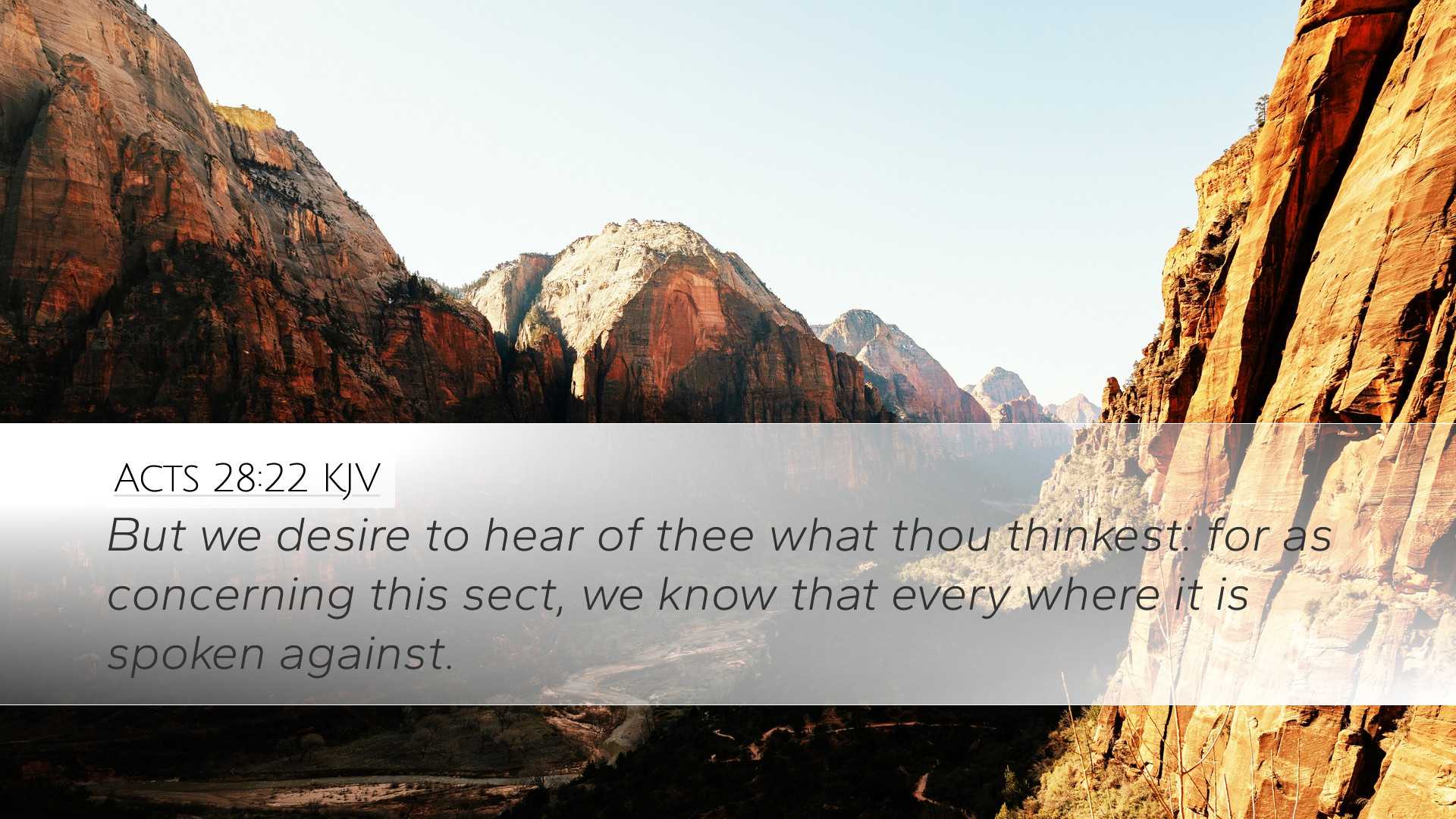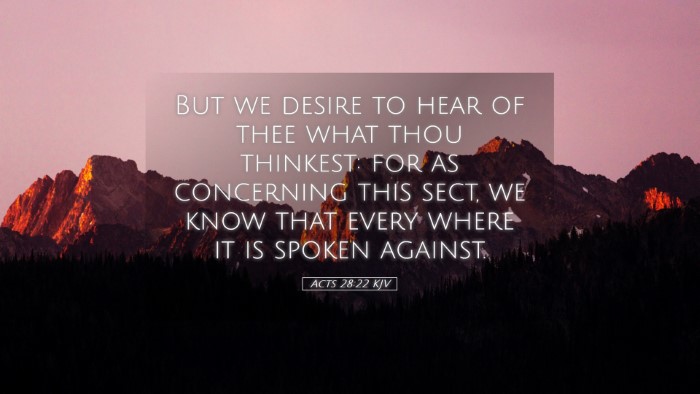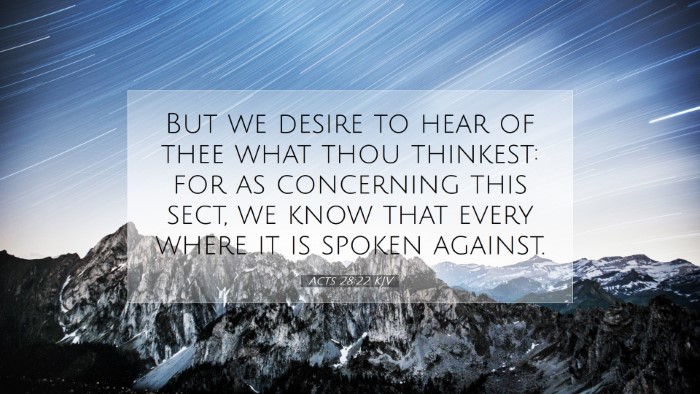Acts 28:22 - Commentary Summary
Acts 28:22 reads: "But we desire to hear of thee what thou thinkest: for as concerning this sect, we know that everywhere it is spoken against." This verse provides a significant point of reference for understanding the reception of the Christian movement in the early Church. Insights drawn from public domain commentaries shed light on the historical and theological implications of this passage.
Contextual Analysis
In the final chapter of Acts, Paul arrives in Rome and is placed under house arrest. Despite his confinement, he continues to engage with broader audiences, representing the persistent proclamation of the Gospel. This context highlights the early Christians’ struggle against societal opposition.
Matthew Henry's Commentary
Paul's Situation: Matthew Henry emphasizes the precarious position of Paul, observing that, despite his chains, he seeks to sow seeds of the Gospel. His presence in Rome amidst opposition illustrates the tenacity of faith in the face of adversity.
Desire to Hear: Henry notes the curiosity and openness of the Jewish leaders. They desired to hear Paul not only out of intrigue but also to perhaps understand the sect that was subject to such controversy.
Confrontation with Contradiction: The remark that this "sect" is spoken against "everywhere" underscores the challenges faced by early Christianity. Henry connects this to the universal struggle of the faithful to maintain truth amidst societal disdain.
Albert Barnes' Commentary
Inquiry of the Jews: Albert Barnes reflects on the Jewish leaders' interest in Paul's perspective. He notes that they had heard rumors about Christianity and wished to clarify its doctrines and implications.
Portrayal of the Sect: Barnes discusses the term “sect” employed in this verse. He argues it reflects not only the division within Judaism but also the larger narrative of the Gospel's challenge to established norms and beliefs of the time.
The Nature of Opposition: Barnes posits that the opposition to Christianity stemmed from both doctrinal disagreements and fear of losing religious authority. He highlights how this dynamic plays a role in the conversation about faith and resistance we see embedded in the text.
Adam Clarke's Commentary
Societal Context: Clarke provides an analysis of the broader societal context in which this dialogue occurs. He urges readers to consider how the early Christians navigated an environment rife with skepticism and hostility.
Exhortation and Teaching: Clarke interprets Paul's willingness to elucidate his faith as an opportunity not just for personal defense but as a missional engagement. It underlines the importance of teaching and explaining the faith amidst challenges.
Response to Prejudice: Clarke reflects on the prejudices held against Christians at the time, noting that the desires expressed to Paul signal a moment where the Gospel could encounter a hesitant yet curious audience.
Theological Implications
This verse invites deep theological reflection. It underscores the role of dialogue in faith, where understanding is sought amid confusion and detractors. It beckons contemporary believers to engage in similar dialogues, striving to address misconceptions about faith.
Application for Pastors and Theologians
- Engagement: Pastors are encouraged to engage with skeptical audiences, taking cues from Paul’s approach. Approaching conversations with humility while representing the core tenets of the faith is pivotal.
- Education: The need for education within the congregation is paramount. Teaching about misconceptions can arm church members against societal narratives that are counter to biblical truth.
- Compassionate Witness: Understanding the struggles that people face regarding faith allows for a more compassionate witness. Recognizing that others may have legitimate questions, Christians can cultivate environments of grace.
Conclusion
Acts 28:22 serves as a cornerstone for reflection on how early Christians navigated the complexities of their faith in the face of opposition. Insights from Matthew Henry, Albert Barnes, and Adam Clarke collectively enrich our understanding of this pivotal moment. For pastors, students, and theologians alike, this passage compels us to consider how we approach interactions about faith amidst societal scrutiny.


